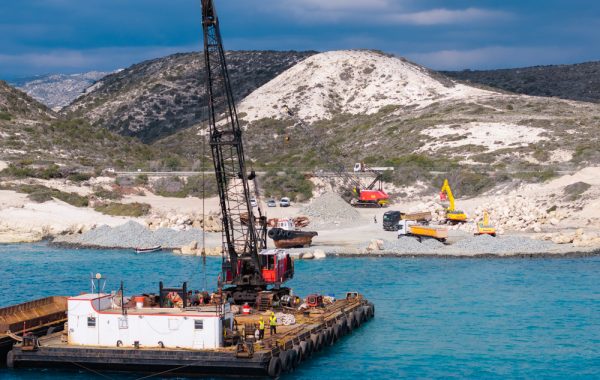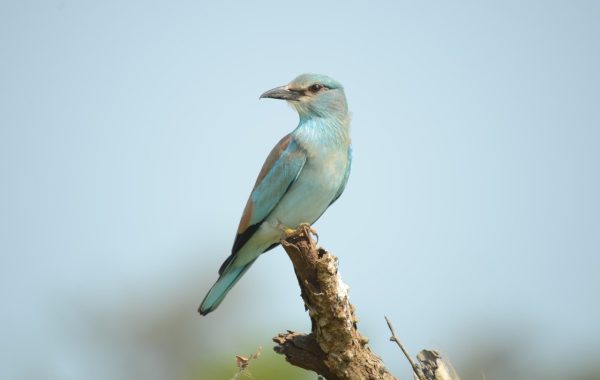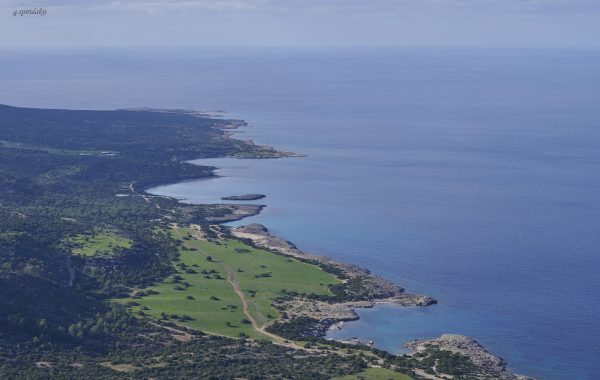The fine was issued for offenses that took place in December 2021, where three birds of prey, two Bonelli’s Eagles and one Goshawk, were found dead near Dierona village in the Limassol district. The identification of the precise location of the above dead birds was made possible through the signals of the GPS transmitter that had been fitted on one of the eagles, which is what mobilized the Game and Fauna Service to investigate in the area in collaboration with the Police.
Upon investigation, evidence collected linked the mortality of the bird victims to a specific individual. The individual was handed a fine for the offense of killing wild birds with the use of poison and the offense of intentionally killing and/or capturing a protected wild bird. The necropsy and related toxicological analyses on the dead birds showed that their death was caused by carbofuran, a highly toxic and banned substance.
The suspect was fined €21,000 under the provisions of the Protection and Management of Wild Birds and Game Law of 2003. In the case that the fine is not paid, the suspect will be taken to court. According to the provisions of the above legislation, the court can impose a prison sentence of up to 3 years or a fine of up to €20,000 or a combination of these for each offense separately!


The two Bonelli’s Eagles that were found dead in the area © Game and Fauna Service
This is the first time in Cyprus that the crime of using poison baits and killing wild birds with the use of poison has been prosecuted. The law foresees very severe penalties for the killing of a threatened species, such as the Bonelli’s Eagle in this case. The prompt mobilization and coordination among the competent authorities for the thorough investigation of the case played a crucial role, namely the Police, the Game and Fauna Service, the State General Lab, the Veterinary Services and the Department of Agriculture. Τhis result comes when there is a targeted effort from several stakeholders to acquire capacity and knowledge on the forensic investigation of wildlife crimes, through participation in the Wildlife Crime Academy, a learning platform that is using Spanish best practice.
Melpo Apostolidou, BirdLife Cyprus’ Project Coordinator, said: “The culmination of everyone’s efforts marks a milestone and is a positive development in the intensive efforts being made by all involved to combat the use of poison baits in the countryside. We believe that Cyprus is now ready to follow the example of other European countries and invest even more in efforts to prevent wildlife poisoning. As an example, I mention that in 2019, in Spain, three people were sentenced to 2 years and 8 months in prison and were ordered to pay €67,538 in compensation for the wildlife damage they caused.”
Placing poison baits in the countryside is a wildlife crime that has driven iconic bird species such as the Griffon Vulture to the brink of extinction in Cyprus. Since 2005, 31 vultures have been poisoned, leaving Cyprus now with a population only nine vultures, which is being restocked with birds coming from Spain as part of the LIFE with Vultures project.
It is pointed out that all cases of poisoning must be thoroughly investigated to identify the suspects and prosecute them. To this end, the public is called to assist in this effort by reporting such wildlife crime incidents to the Game and Fauna Service’s Anti-poison Dog Units on 99267916 or 99255086 as well as the local police station.




